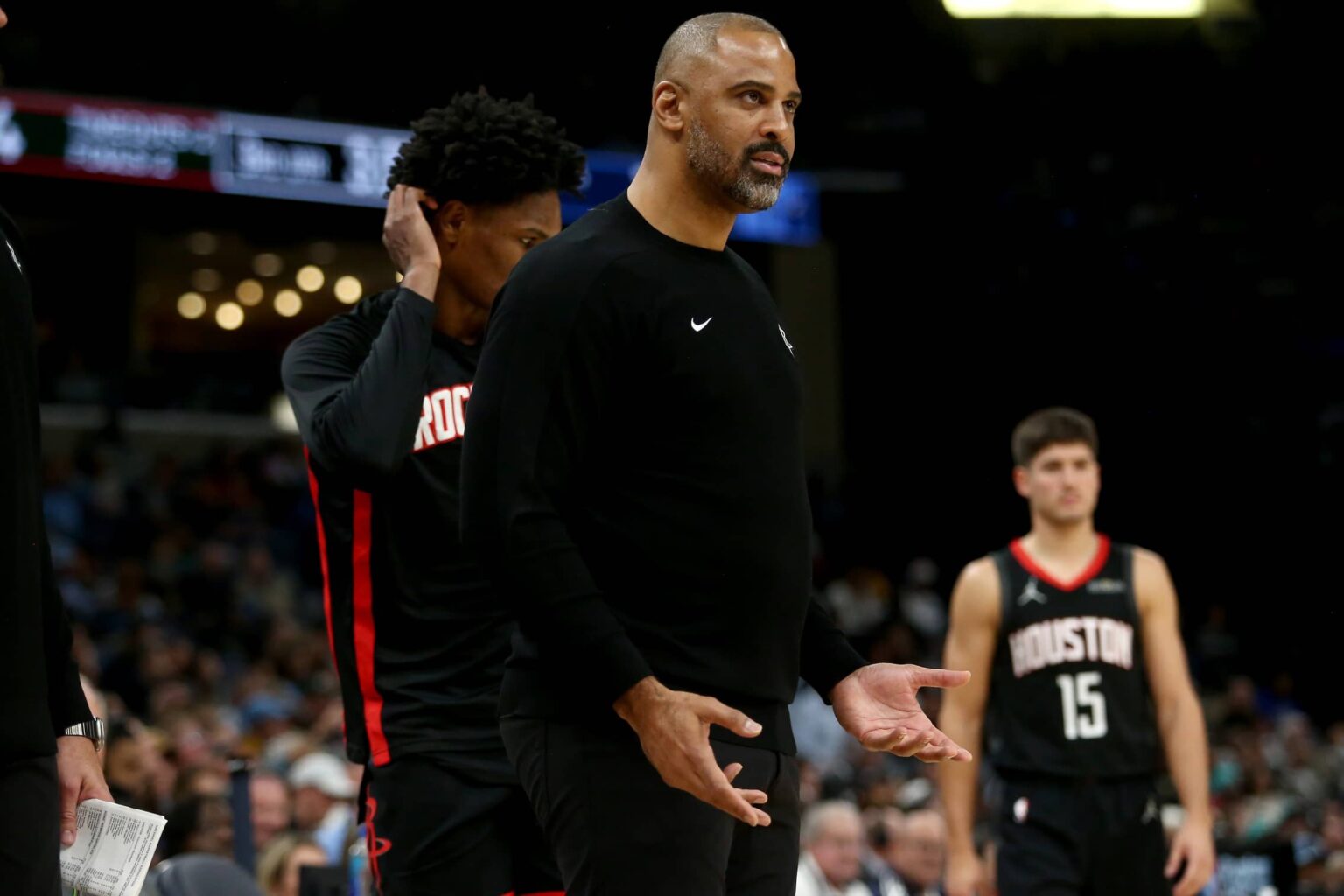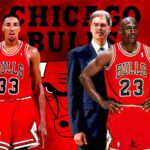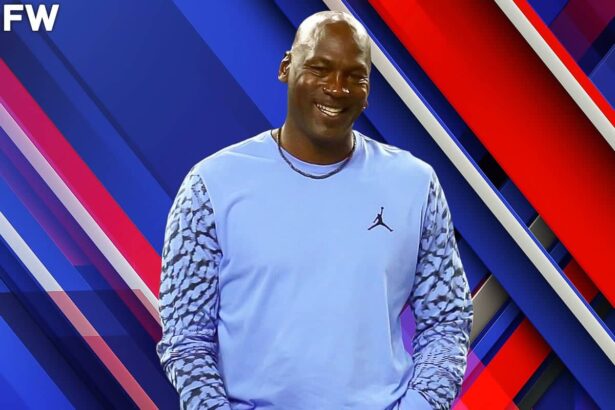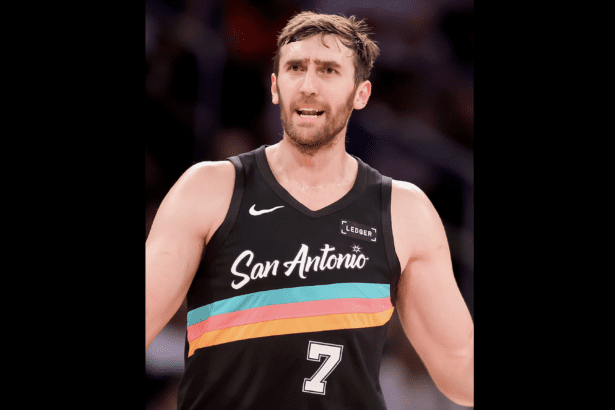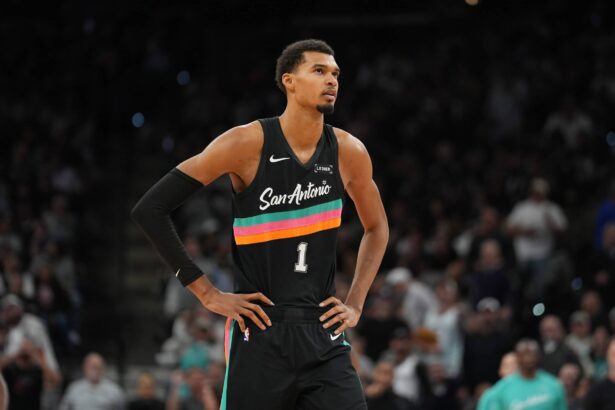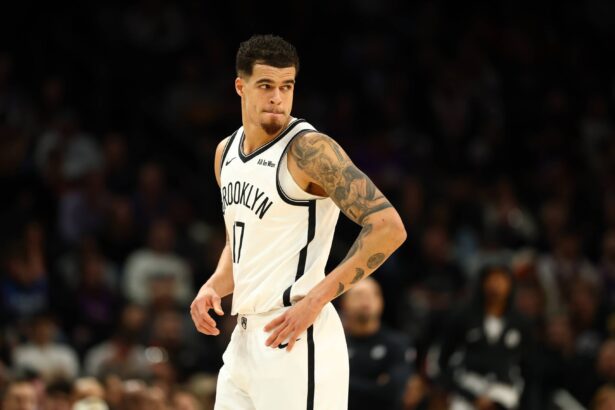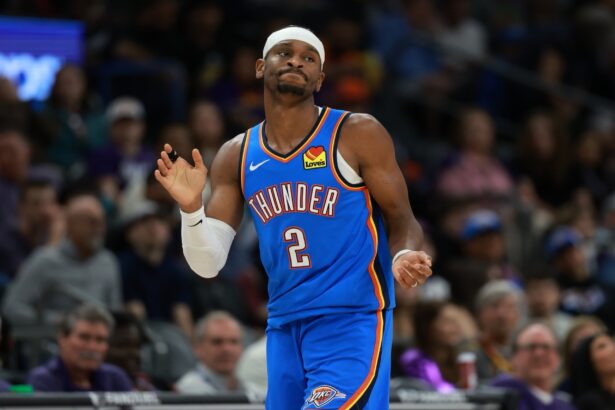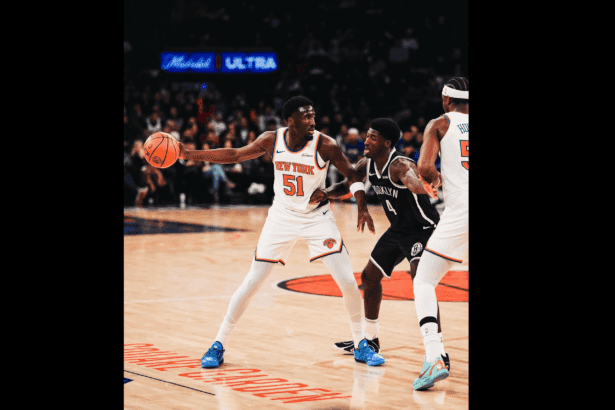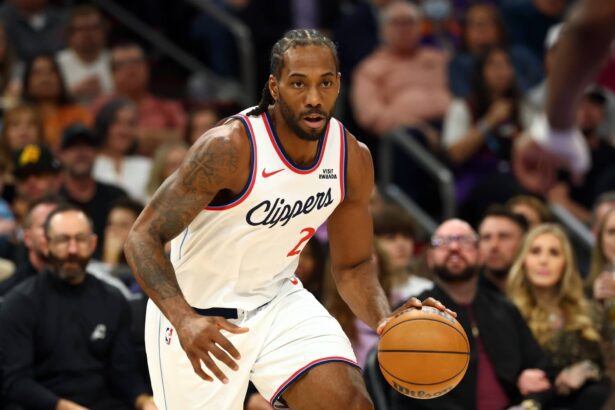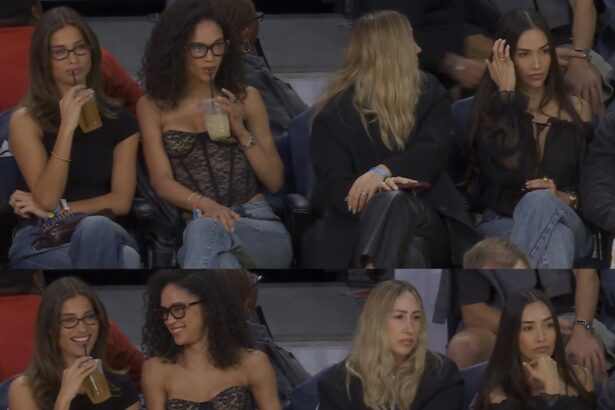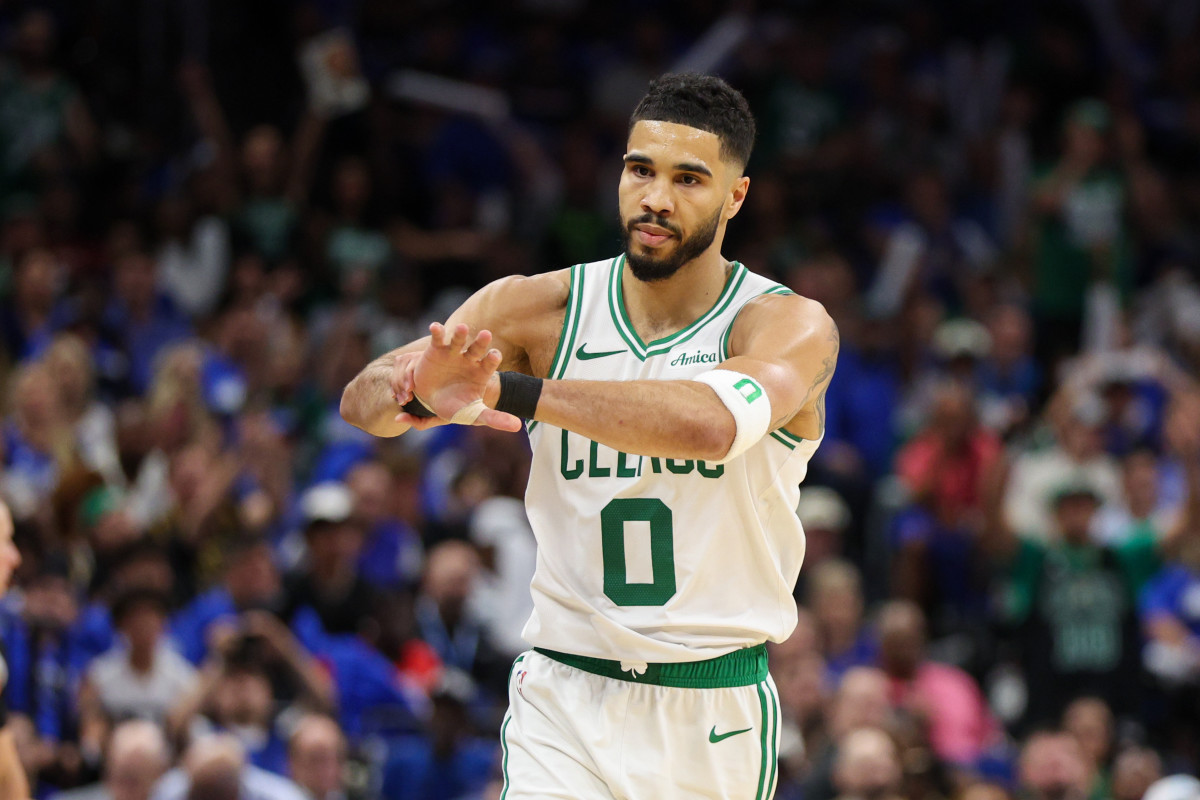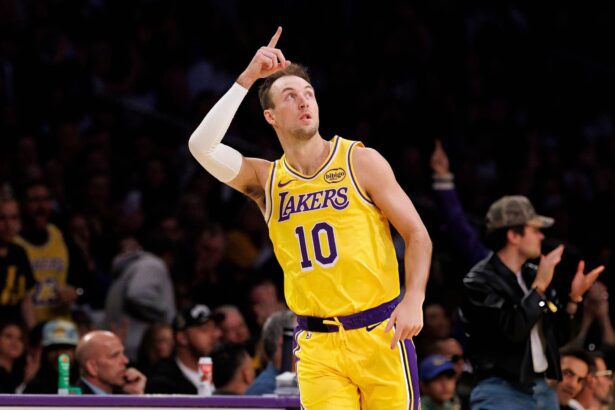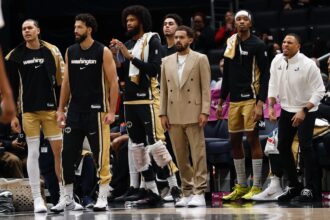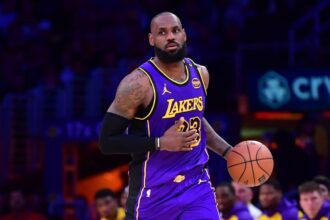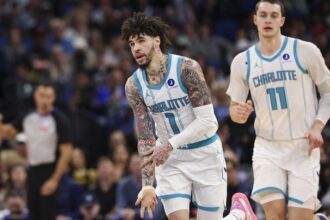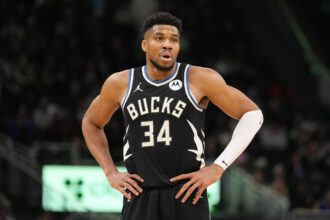With a 5-2 record, the Houston Rockets appear to have found their footing this season. Coming off a 124-109 win against the Memphis Grizzlies, the Rockets have successfully extended their winning streak to five games, an impressive feat in every sense.
Houston appears to have adapted to Fred VanVleet‘s absence, as he is expected to be sidelined for the entire season with an ACL injury. Even after some strong outings, however, the Rockets could look to add some legitimate depth to their backcourt.
At the current juncture, the Rockets feature a starting backcourt of Amen Thompson and Josh Okogie. While the results have been impressive, concerns about how sustainable such a rotation could be remain.
Given how competitive the Western Conference is expected to be, Houston could look to make some upgrades. Keeping this in mind, we present a three-team trade proposal that would solidify the Rockets’ position as a title favorite in the West.
Proposed Trade Details
Houston Rockets Receive: Derrick White, Sam Hauser
Boston Celtics Receive: Fred VanVleet, Clint Capela, Nick Richards, 2027 second-round pick (HOU via MEM), 2031 second-round pick (ATL swap)
Phoenix Suns: Tari Eason
In this package, the Phoenix Suns primarily play the role of a facilitator. With Houston being hard-capped at the first tax apron, diverting some assets to keep them below the threshold becomes necessary. Regardless, the Suns should be satisfied with the addition of a talented young forward like Tari Eason.
Why Do The Celtics Do This Deal?
This trade scenario has significant implications for the Boston Celtics. However, the primary takeaway is the added frontcourt depth. With the addition of Clint Capela and Nick Richards, the Celtics significantly bolster their big man rotation.
Capela may not be as productive as he used to be, but his experience and rebounding upside could remain valuable in a limited capacity. In seven appearances for the Rockets this season, he is averaging 4.6 points and 5.1 rebounds per game on 70.6% shooting overall in 10.9 minutes per game.
Given that Richards hasn’t received much playing time this season with the Suns, his averages of 4.3 points and 2.9 rebounds per game don’t draw much attention.
With Mark Williams earning more minutes, Richards has struggled to carve out a place for himself in Phoenix’s rotation this season. But considering his averages of 9.5 points and 8.6 rebounds per game on 60.5% shooting from the floor last season, the Celtics could see major value in this addition.
While these two players could be an immediate boost for Boston, this trade also has future benefits for the Celtics.
Adding a veteran guard like Fred VanVleet presents some upside. Given that VanVleet is only expected to return next season, his comeback aligns with the timeline for Celtics superstar Jayson Tatum’s return.
With Tatum and VanVleet joining a solid roster, the Celtics could boast a formidable unit heading into the 2026-27 season. Factoring in the two draft picks as well, Boston may view this deal quite favorably.
Do The Rockets Improve With Derrick White’s Addition?
While several candidates were listed as potential replacements for Fred VanVleet, Derrick White could be the ideal replacement for a team like the Rockets. With White’s perimeter shooting ability, playmaking, and defensive upside, Houston could see a major boost to their backcourt depth with his addition.
This season, White has gotten off to a slow start, averaging 14.1 points, 3.7 rebounds, and 4.7 assists per game on 32.1% shooting from the field. Defensively, however, he has remained solid, with an average of 1.8 steals and 1.2 blocks per game.
While his offensive output could raise concerns, given last season’s averages of 16.4 points, 4.5 rebounds, and 4.8 assists on 44.2% shooting from the field and 38.4% from three-point range, he has the potential to become a strong contributor.
Aside from tangible factors, White also brings veteran leadership and championship experience, something a young team like the Rockets could benefit from. When factoring in his experiences under Ime Udoka, Houston could see great value in his addition.
Meanwhile, an acquisition like Sam Hauser may also be perceived favorably. As a reliable perimeter threat, Hauser’s addition becomes another weapon in Houston’s arsenal. He is averaging 8.9 points and 3.0 rebounds per game on 36.1% shooting overall and 38.5% from three-point range.
Who Benefits The Most From This Deal?
On paper, each team has something to gain from this trade.
In the immediate context, the Rockets may enjoy more benefits. With White potentially having a significant impact on Houston’s defensive rotations and perimeter shooting, the Rockets could assert their position as a true contender. This could result in them emerging as favorites in the West as well.
From a long-term perspective, the Celtics could stand to gain a lot more. With solid rotation pieces to strengthen their roster depth for the 2026-27 season, when they’re healthy, Boston may return to their place as title contenders in the East.
Realistically, however, this trade may not work.
For the Celtics, giving up White, who has been a valuable member of the team’s championship core, seems unlikely at this stage. Although the Rockets may be readily willing to part with VanVleet and Capela, parting with Eason, who has shown notable growth this season, would be unfavorable.
Overall, given the direction the Rockets are headed in, it doesn’t seem necessary for them to make any major adjustments. With some momentum on its side, Houston will look to extend its streak as it heads into its next matchup against the San Antonio Spurs tonight at 7:30 p.m. ET.

